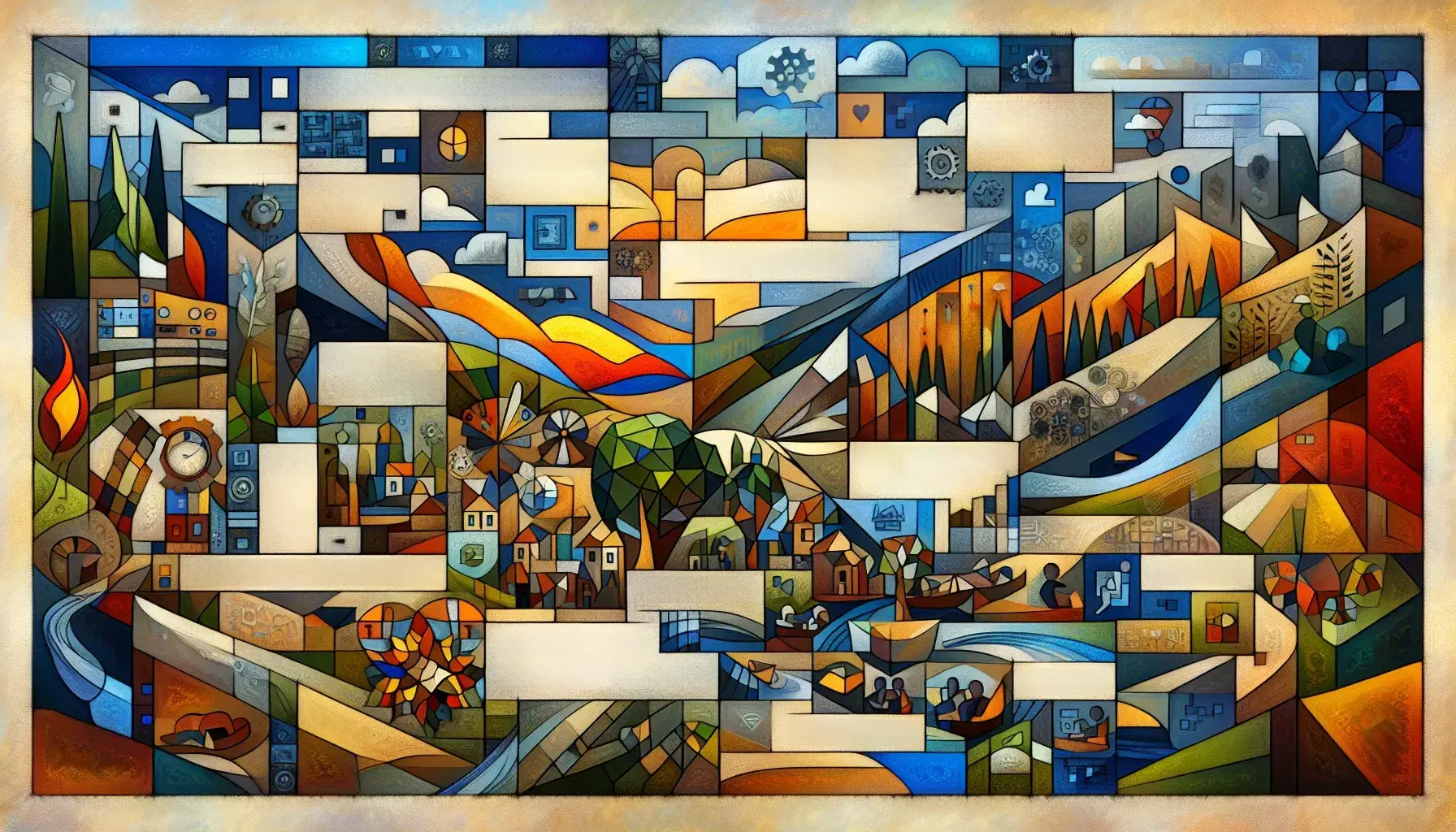Cultivating Curiosity: Nurturing a Love for Knowledge in Family Culture

As parents, we're not just caretakers, but the first and most impactful teachers our children will ever have. At the EvaRealm Blog, we understand that fostering an environment of curiosity and learning at home doesn't just happen; it's cultivated. From storytelling to integrating travel experiences and beyond, let's explore how families can become passionate lifetime learners together.
Igniting Passionate Learners at Home
Creating a home environment that stimulates curiosity starts with the attitudes and behaviors of parents. We are our children's role models, and when they see us engaged in learning and displaying a passion for knowledge, they mirror these values. Simple practices such as reading books, exploring the outdoors, or even cooking together can lead to valuable teachable moments where curiosity sparks. Parents can also set aside dedicated time for family discussions on intriguing topics or news events, which demonstrates a commitment to understanding the world. Ultimately, the thirst for knowledge is nurtured in an atmosphere where asking questions is encouraged and pursuing answers is celebrated.
How parents can model a love for learning
The art of storytelling holds immense power in shaping a family's culture of learning. Whether it's revisiting timeless classics or delving into new children’s literature, stories foster imagination and empathy. At EvaRealm Blog, we advocate for storytelling not only as entertainment but as an educational strategy that can introduce complex concepts and worldly themes in a digestible manner for children. Moreover, sharing stories from different cultures can broaden perspectives while maintaining strong family bonds through shared experiences. Storytelling nights can become a cherished ritual that defines family time.
Related Article: Beyond Academics: Fostering Creativity in Children
The Power of Storytelling in Family Education
Incorporating travel into education provides real-world context to textbook knowledge, bringing history, geography, and social studies to life. When families visit museums, historical sites or engage with different cultures abroad or through local communities, they expose their members to diverse ways of life and new ideas. The experience of travel itself teaches adaptability, problem-solving, and cultural sensitivity—valuable skills for thriving in our interconnected world. At EvaRealm Blog, we often emphasize that these trips need not be extravagant; even local excursions can yield enriching experiences.
Benefits of storytelling for children’s development
As technology continues to evolve at breakneck speeds, digital literacy becomes an essential part of family education. Integrating tech-based learning tools at home can make complex subjects like coding or graphic design accessible and enjoyable. Parents can learn alongside their children by leveraging online courses or utilizing educational apps together, establishing habits of lifelong learning while remaining vigilant about online safety and screen time.
Related Article: The Power of Play: Fostering Creativity and Development in Kids
How travel enhances education and cultural understanding
At-home exploration stations such as science corners equipped with basic experimentation kits or art stations with various materials encourage spontaneous creativity and investigation. By designating areas within the home for these activities without fear of making a mess or being wrong, families send a clear message that exploration is valued.
Digital Literacy in a Tech-Centric World
Just like the body needs good food to thrive, so does the mind require nourishment from quality intellectual material. Balancing digital consumption with analog experiences such as board games that promote critical thinking is key to developing well-rounded intellects. Additionally, subscribing to educational periodicals or joining book clubs can stimulate family discussions around varied topics and ensure minds of all ages remain engaged and active.
Related Article: Nurturing Emotional Intelligence: How Small Businesses Impact Childrens Social Growth
Creating Spaces for Exploration and Innovation
In multi-generational households or during family reunions, shared learning adventures become bridges across age differences. Whether it’s planting a garden together or tracing genealogy through old photographs and stories, shared projects provide common ground while passing down knowledge through generations. These activities strengthen familial ties while honoring the wisdom present within each family member's unique experiences.
The importance of designated exploration areas at home
As children develop from toddlers into teens, their needs change drastically—from hands-on engagement to requiring autonomy in their pursuit of knowledge. It becomes essential to adapt educational approaches appropriately. While younger kids might revel in playful discovery-based learning methods, teenagers might benefit more from mentorship opportunities or internships connected with their interests. Ensuring flexibility within family culture allows parents to meet each child’s developmental needs effectively at every stage.
Nourishing Minds with Quality Intellectual Material
At EvaRealm Blog, cultivating curiosity within family life is much more than an ideal; it’s an actionable pathway toward raising well-rounded individuals who value knowledge both as a means to success and as an end in itself. By intertwining education seamlessly into everyday life—from storytime snuggles to teen-led tech tutorials—families create a life-long love affair with learning that stands as one of the greatest gifts they can provide their loved ones.
Frequently Asked Questions
Parents can foster a love for learning by modeling curiosity and engagement in educational activities. Simple practices like reading together, exploring nature, and having family discussions about interesting topics encourage children to ask questions and seek answers, creating a nurturing environment for lifelong learning.
Storytelling is a powerful tool in family education as it fosters imagination and empathy. By sharing stories from various cultures or revisiting classics, families can introduce complex concepts in an engaging way, strengthening bonds and creating cherished rituals that enhance the learning experience.
Digital literacy is crucial for families as technology rapidly evolves. It equips children with essential skills for the modern world, making subjects like coding accessible. Parents can engage in tech-based learning with their children, promoting lifelong learning while ensuring safe and balanced screen time practices.
Check Out These Related Articles

Fostering Emotional Agility in Children Through Innovative Practices

Navigating Neuroplasticity in Childhood Development: Opportunities and Challenges for Modern Parents

Demystifying the Impact of Digital Media on Children's Emotional Intelligence and Social Skills

